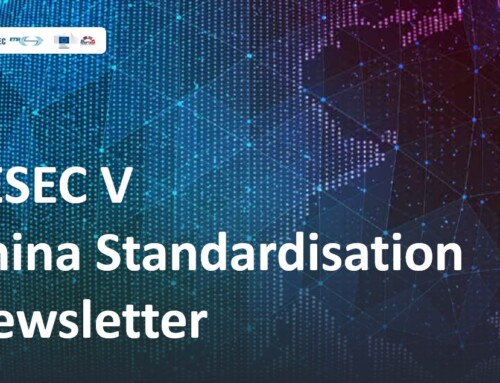On 28 July, China’s Ministry of Industry and Information Technology held an internal meeting to outline its agenda for the second half of 2025. The meeting identified 8 primary tasks, focusing on stabilizing industrial growth, securing critical supply chains, and strengthening technological self-reliance.
The agenda emphasizes digital transformation, green development, and cultivation of high-quality enterprises, while also promoting industrial innovation in emerging sectors such as AI and AI-enabled industrial applications, humanoid robotics, IoT, and next-generation communications.
MIIT will expand financial and policy support for innovative small and medium enterprises, accelerate reforms in industrial governance, and promote alignment between industrial policies, digital technologies, and sustainable practices.
Collectively, these measures seek to consolidate China’s industrial competitiveness, reduce external dependencies, and build long-term resilience against global uncertainties.
Three standardization-related key points appeared in the task list.
- Establish a carbon footprint accounting standards system for industrial products.
- Elevate the quality of standards to phase out outdated production capacity.
- Enhance the development of mandatory national standards system in the fields of industry and information technology.
The 8 primary tasks will be implemented in adherence to 4 key principles.
Four Principles:
- Strengthening resilience
- Creating value
- Ensuring security
- Enhancing governance
Eight Tasks:
- Implementing the Strategy to Expand Domestic Demand and Solidify the Foundation of the Industrial Economy
- Launch a new round of initiatives to stabilize growth in ten key industries (steel, non-ferrous metals, petrochemicals, chemicals, building materials, machinery, automotive, power equipment, light industry and electronics).
- Give full play to the leading role of major industrial provinces.
- Formulate an action plan to enhance the supply-demand alignment of consumer goods and boost consumption.
- Accelerating the development and application of technologies such as AI-powered terminals, ultra-high-definition video, smart wearables, and drones.
- Promote the formulation of guidelines for financial support to new industrialization.
- Expand the implementation of the “Sci-Tech Industry Finance Integration” initiative.
- Intensify efforts to clear overdue payments to enterprises.
- Establish and improve a long-term supervision mechanism for charges imposed on enterprises.
- Ensure detailed implementation of policies aimed at supporting and relieving enterprises.
- Maintain the stable development of the tobacco industry.
- Intensify Efforts to Advance the High-Quality Development of Key Industrial Chains and Proactively Address Risks and Challenges
- Fully promote the autonomy and controllability of key industrial chains.
- Strengthen the supply security of strategic mineral resources.
- Continue to facilitate industrial transfer and docking activities.
- Drive the optimization of the global layout for key industrial chains.
- Strengthening the Integrated Development of Technological and Industrial Innovation to Enhance Core Industrial Competitiveness
- Ensure the effective implementation of National Major Science and Technology Projects and Key National R&D Programs.
- Enhance the development of technological innovation platforms.
- Strengthen the cultivation of technology business incubators.
- Launch initiatives to foster emerging industrial sectors and bolster new growth drivers.
- Refine industrial policies for humanoid robotics, the Internet of Things (IoT), high-end instrumentation, and related fields.
- Improve policy measures for innovating and developing service-oriented manufacturing.
- Elevate the development standards of industrial design.
- Vigorously promote industrial culture and deepen the integration of culture with industry.
- Optimize the layout of the defense science and technology industry.
- Drive high-quality development of national high-tech industrial development zones.
- Advance the construction of the Harbin-Changchun-Shenyang-Dalian Industrial Technology Innovation Corridor.
- Deepen the Empowering Application of Digital Technologies and Promote the In-Depth Integration of Informatization and Industrialization
- Formulate implementation guidelines for enabling new industrialization with data factors and accelerating the digital transformation of industries.
- Enhance policies supporting the high-quality development of basic software and industrial software.
- Improve China’s open-source ecosystem and establish national-level open-source communities for artificial intelligence.
- Execute pilot programs for new technological transformation in manufacturing cities and digital transformation initiatives for SMEs across 100 cities.
- Advance the “AI + Manufacturing” initiative to achieve substantive outcomes, strengthening foundational R&D and promoting application in key scenarios.
- Deepen the application of industrial internet through tiered and categorized approaches and cultivate a batch of industrial intelligent agents.
- Advancing Green Development and Enhancing Industrial Energy Efficiency and Sustainability
- Establish a carbon footprint accounting standards system for industrial products.
- Promote the development of digital energy and carbon management centers.
- Advance the cultivation and development of “Zero-Waste Industrial Parks” and “Zero-Waste Enterprises.”
- Strengthen the management of recycling and utilization of power batteries for new energy vehicles and lithium-ion batteries for electric bicycles.
- Implement the Green Factory Quality and Scale-Up Program and the Green and Low-Carbon Supply Chain Enhancement Initiative.
- Reinforce workplace safety protocols.
- Fully complete the relocation and technological transformation of hazardous chemicals producers.
- Promoting High-Quality Development in the Information and Communications Industry to Consolidate Competitive Advantages and Leadership
- Facilitate the widespread adoption and quality enhancement of 5G and gigabit optical networks.
- Continue to advance the “Signal Enhancement” special campaign.
- Increase efforts to promote pilot programs for 10-gigabit optical networks.
- Systematically advance the construction and layout of computing power centers.
- Enhance the supply capacity of intelligent computing resources and improve resource utilization efficiency.
- Fully implement electronic licensing for telecommunications business operations.
- Optimize market access for satellite communication services.
- Establish national comprehensive regional emergency communication support centers.
- Implement practical and user-friendly information and communication service initiatives.
- Intensify efforts to prevent and combat telecom and online fraud.
- Strengthen radio regulation management.
- Ensure comprehensive support for radio security, communication services, and cybersecurity during major events.
- Improving the Tiered Cultivation System for High-Quality Enterprises and Enhance Enterprise Services
- Formulate policies to establish a mechanism for fostering the growth of specialized, refined, unique and innovative SMEs
- Revise the management measures for the recognition of high-tech enterprises.
- Explore the establishment of an active identification mechanism for high-quality enterprises.
- Promote the creation of a mechanism enabling enterprises to enjoy preferential policies without application.
- Effectively develop and utilize the China SME Service Network.
- Deepening Comprehensive Reforms and Enhancing Modernization of Industry Governance
- Accelerate the implementation of reform tasks.
- Effectively carry out the formulation of the 15th Five-Year Plan.
- Consolidate achievements from the comprehensive rectification of “internal competition” in the new energy vehicle industry.
- Strengthen governance in key sectors such as photovoltaics.
- Elevate the quality of standards to phase out outdated production capacity.
- Enhance the development of mandatory national standards system in the fields of industry and information technology.
- Strengthen the development of cadres and talent teams.
- Optimize and strengthen national outstanding engineer practice bases.
- Focus on building distinctive “Ideological and Political Education” programs with industrial and informational characteristics.
- Promote the “Double First-Class” initiative in ministry-affiliated universities to new heights.




